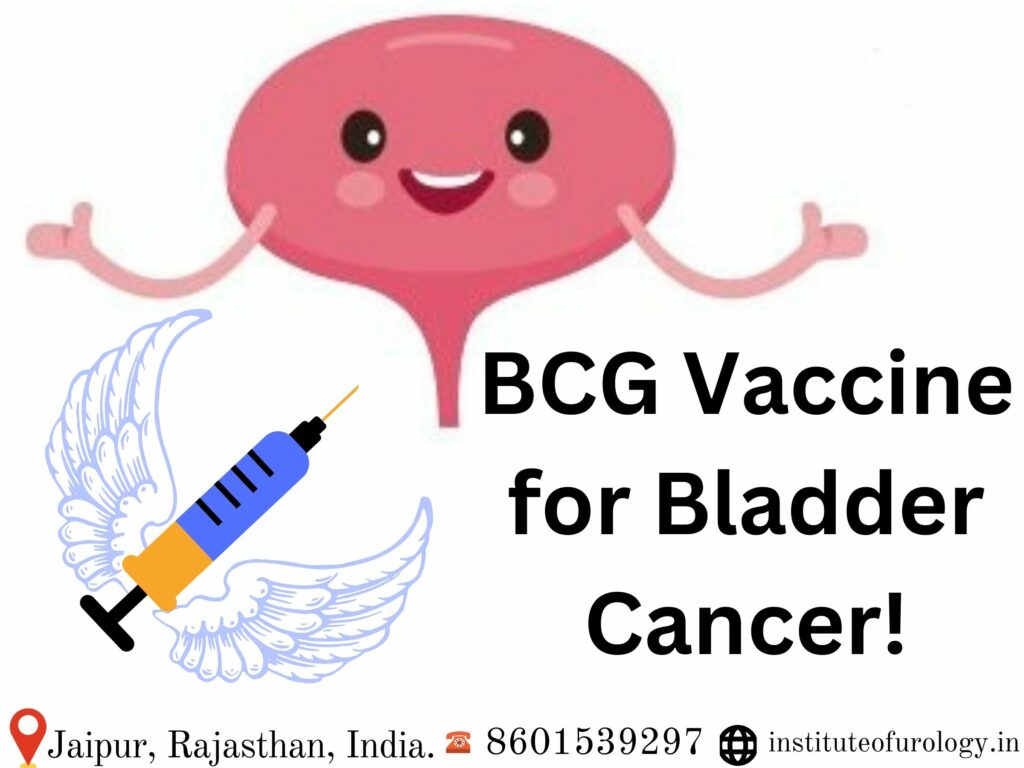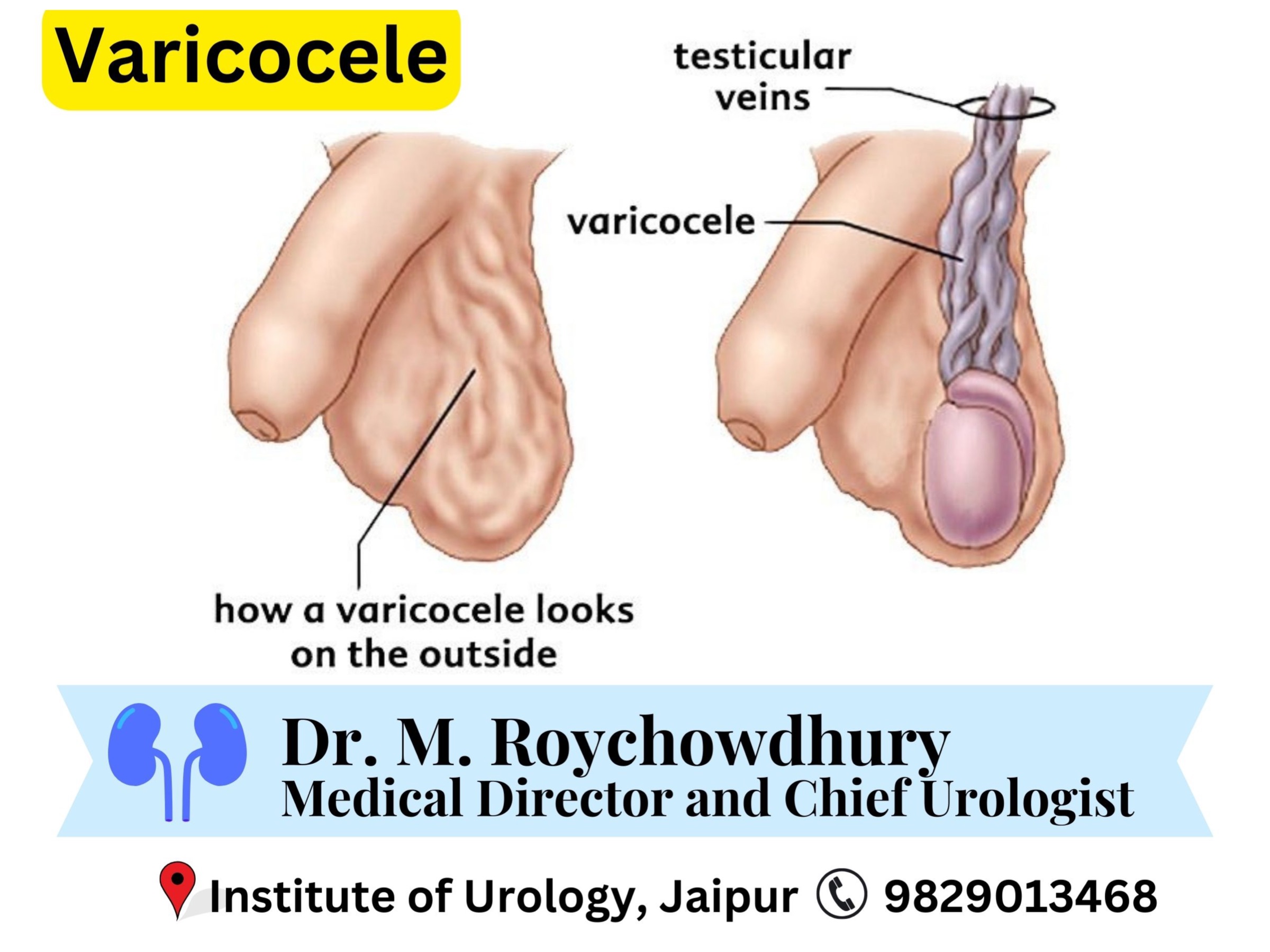BCG Vaccine for Prevention of Bladder Cancer: BCG is the name of a bacteria that causes Tuberculosis. BCG vaccine consists of weakened bacteria that are just enough to start an immune response in the body which can fight against Tuberculosis. BCG vaccine is given to every child in India at birth. Now, it is really interesting to learn about how BCG vaccine can help in preventing urinary bladder cancer as Immunotherapy!

How does BCG Vaccine Work against Bladder Cancer? What is the Mechanism of Action?
We will try to understand this in very simple terms. When the BCG vaccine or liquid containing BCG Vaccine comes in contact with the urinary bladder, it invokes a series of immune response including anti oncogenic responses which cause induction of Helper T Cell type 1. The immune cells thus generated, target the cancer cells of the bladder specifically and spare the normal bladder cells. Hence, the cancer cells are destroyed and the progression of cancer is reduced as well as chances of recurrence are reduced.
When is BCG Treatment given?
Treatment with BCG vaccine is usually given around 2 to 4 weeks after TURBT (Trans Urethral Resection of Bladder Tumour) which is a procedure done for removing superficial bladder cancer tissue. We will explain about the step by step procedure as well as the proper schedule in this article below. You can further read more about Urinary Bladder Cancer Treatment Options “Here” in detail.
Are there any Side Effects of BCG Treatment?
BCG essentially contains live, weakened bacteria. So it is possible for patients to get some side effects like fever, muscle pain, fatigue or even a rash. Sometimes, there may be some amount of blood seen in urine. But the good news is, these symptoms are short lasting for about two or three days. It is always best to keep the treating urologist informed about any side effects that you might be experiencing.
What are the Diseases that can be treated with BCG?
Early Stage Urinary bladder cancer is the most common condition treated with BCG vaccine. However, it must be clearly noted that this treatment is not helpful in advanced or late stages of cancer where the cancer cells have invaded the deeper layers of the urinary bladder.
There are ongoing researches which throw a light to the possibility of using BCG for treatment of diseases such as Fibromyalgia and Diabetes. But these are still in research stages. As a treatment modality, BCG treatment is currently only recommended for bladder cancer.
What is the Procedure of BCG Treatment? How is BCG Treatment performed?
Step by Step Procedure of BCG Treatment for Superficial or Non Muscle Invasive Bladder Cancer
- The procedure is done 2 to 4 weeks after tumour resection. This allows for re- epithelialization. This minimizes the potential for intravasation of live bacteria.
- Urine Analysis is done before hand to rule out any existing infection or any significant bleeding.
- It is important to make sure the catheterisation is non traumatic. If trauma occurs during catheterization, then the procedure is delayed for several days to 1 week depending upon the severity of injury.
- BCG is given in standard dose of 120 mg per 50 mL. This dose is however reduced if any intolerance develops.
- After this solution is passed into the bladder through the catheter, the patient is to hold the solution in the bladder for 2 hours.
- After this, when the patient passes urine for the first time, the toilet must be cleaned with a bleach.
What is the Treatment Schedule followed for BCG Therapy?
- Induction Phase – The commencement phase of the BCG Therapy is known as Induction phase. As aforementioned, it is given 2 to 4 weeks after TURBT and then continued once a week for 6 weeks.
- Maintenance Phase – We follow “Lamm Regimen” for maintenance phase. Here, after 6 weeks of induction phase is completed, patient is then given BCG Treatment once a month for 10 months.
So overall for one BCG Therapy schedule, a total of 16 doses of BCG is given.
Are there any contraindications for BCG Treatment?
- BCG is not given to immunosuppressed or compromised patients.
- It is not done immediately after TURBT.
- It is not done if patient has any significant hematuria or has undergone traumatic catheterization.
- BCG must not be given if the patient has a history of BCG sepsis.
- BCG is contraindicated in case of total incontinence.
Is BCG Treatment a Routinely Performed Therapy?
BCG treatment is a fairly modern technique and is widely used in all Developed countries including USA, France and UK.
I hope we have given you a fair idea about BCG therapy for Urinary Bladder Cancer. It is a routinely performed procedure at our hospital Institute of Urology, Jaipur. If you have any other questions, please feel free to give us a call on the numbers mentioned below. Direct consultation is only available in Jaipur at our hospital – Institute of Urology, C Scheme, Jaipur.
Watch my video on BCG Intravesical Therapy for Urinary Bladder Cancer
Dr. M. Roychowdhury – 9829013468
Dr. Rajan Bansal – 8601539297








Definitely cleared a lot of my doubts. Thanks doctor.